Home air conditioning installation
Professional home air conditioning systems designed for your comfort and energy savings.
Your trusted partner for exceptional home air conditioning solutions
Whether you're seeking to escape the summer heat or find year-round comfort, we offer a range of high-quality air conditioning systems and expertise to meet your needs. Our commitment to quality and personalised service ensures you experience cool comfort and peace of mind in your home.
Popular air conditioning installations for UK homes
Wall-mounted air conditioners
Wall-mounted air conditioners, also known as split system air conditioners, are the most popular choice for cooling homes in the UK. These units consist of two main parts: an outdoor condenser unit and an indoor fan coil unit mounted high on a wall. Compared to central air conditioning, they offer several advantages:
- Targeted cooling: They cool individual rooms or zones efficiently, avoiding unnecessary cooling in unoccupied areas and saving energy.
- No extensive ductwork: Unlike central AC, they don’t require a complex network of ducts, making them easier to install, especially in existing homes, and saving space.
- Multiple options: They come in various capacities and features to suit different room sizes and cooling needs.
- Modern design: The sleek indoor units blend well with most modern home aesthetics.
While initial installation costs might be slightly higher than portable units, wall-mounted air conditioners offer greater efficiency, improved comfort control, and potentially lower long-term running costs, making them a popular and practical choice for many UK homeowners.
The rise of low-wall mounted air conditioning
A recent trend in the UK’s air conditioning market is the increasing popularity of low-wall mounted air conditioners. These units, as the name suggests, are installed lower on the wall compared to traditional models, typically just above floor level. This placement offers several advantages for homes:
- Improved aesthetics: The lower position makes them less visually prominent in the room, maintaining a cleaner and more streamlined aesthetic compared to units mounted higher on the wall.
- Enhanced air distribution: The lower placement allows cool air to flow more readily throughout the room, potentially offering better comfort and temperature uniformity compared to units mounted high on the wall.
- Space-saving: In rooms with limited wall space, especially due to windows or furniture placement, low-wall mounted units provide a flexible and space-saving solution for discreet air conditioning installation.
However, it’s important to note that the effectiveness of this placement might vary depending on factors like room layout, furniture arrangement, and individual preferences. Consulting with a qualified professional can help you determine if a low-wall mounted unit is the most suitable solution for your specific needs and ensure optimal cooling performance in your home.
Ducted ceiling air conditioning for discreet comfort
While not as common as other options in the UK due to wider adoption of split system units, ducted ceiling air conditioners offer a unique set of advantages for specific home situations:
- Discreet and seamless integration: The entire system, including the ductwork, is concealed within ceilings and walls, creating a minimalist and aesthetically pleasing appearance. This is ideal for homeowners who prioritize a clean and uncluttered look in their living spaces.
- Even and consistent cooling: Extensive ductwork allows for even distribution of cool air throughout the entire home, ensuring consistent comfort in all rooms, regardless of size or layout. This is particularly beneficial for larger homes with multiple occupants.
- Zone control capabilities: Some advanced ducted systems offer zone control functionality, allowing you to regulate the temperature in different areas of the house independently, maximizing comfort and potentially saving energy.
However, it’s crucial to consider the limitations of ducted ceiling air conditioning:
- Higher installation costs: Due to the complex ductwork installation, these systems are generally more expensive to install compared to other options.
- Limited flexibility: Adding or modifying the system after installation can be challenging and costly, making them less suitable for homes that might undergo future renovations.
- Maintenance considerations: Regular cleaning and maintenance of the ductwork are essential to ensure optimal performance and air quality, adding to the ongoing cost of ownership.
Therefore, ducted ceiling air conditioning might be a suitable choice for larger homes where even cooling and a discreet aesthetic are priorities, but careful consideration of cost, flexibility, and maintenance needs is essential before making a decision.
Ducted Air Conditioning
Transform your space into a haven of comfort with our expert Ducted Air Conditioner Installation service.

Wall Mounted Aircon
Experience the ultimate cooling comfort with our state-of-the-art range of wall mounted air conditioners.
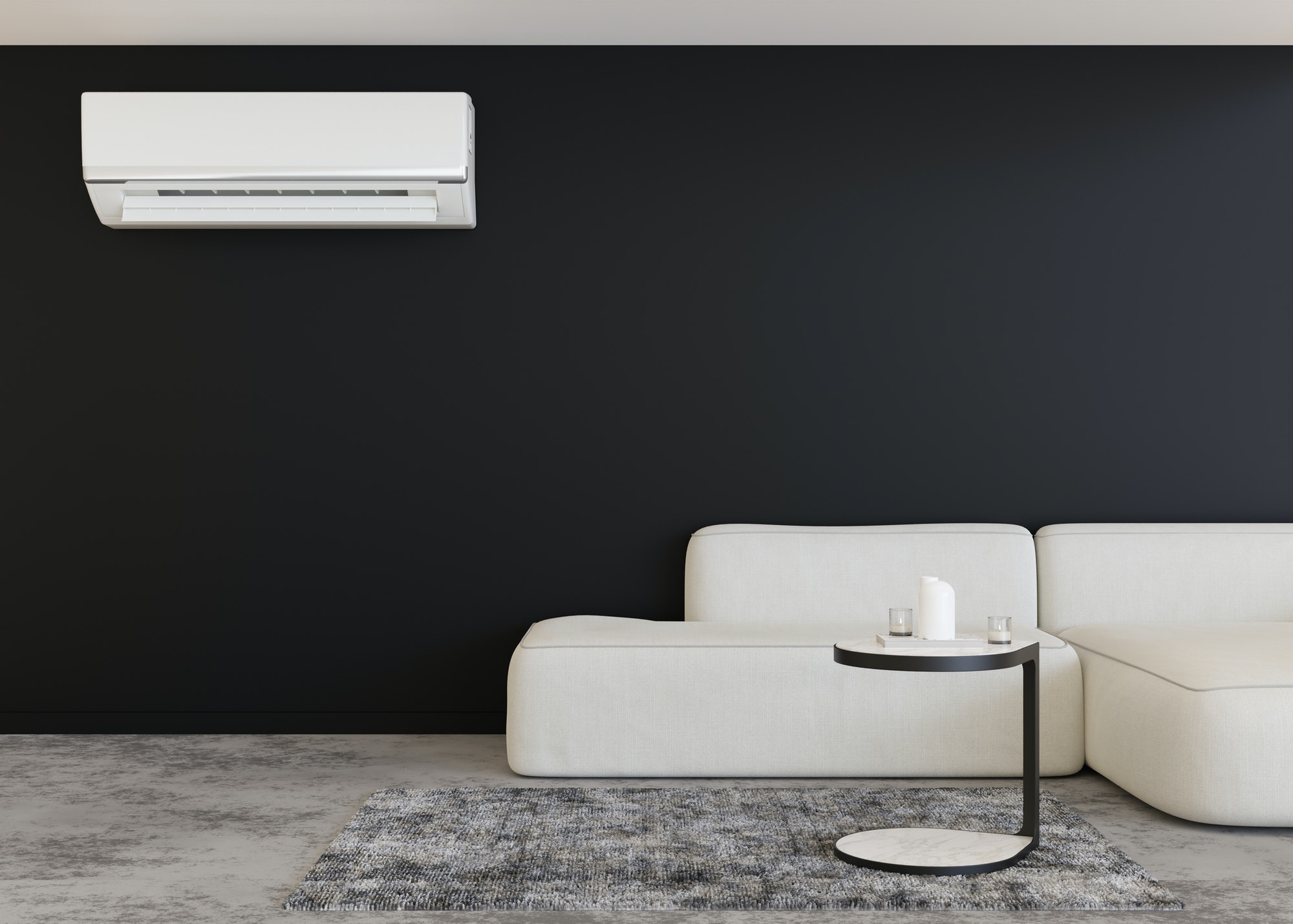
No Outside Box Aircon
With its innovative design, you won’t need to worry about complicated installations of outdoor units.

Floor Mounted Aircon
Upgrade your space’s climate system with premium floor mounted air conditioning units.
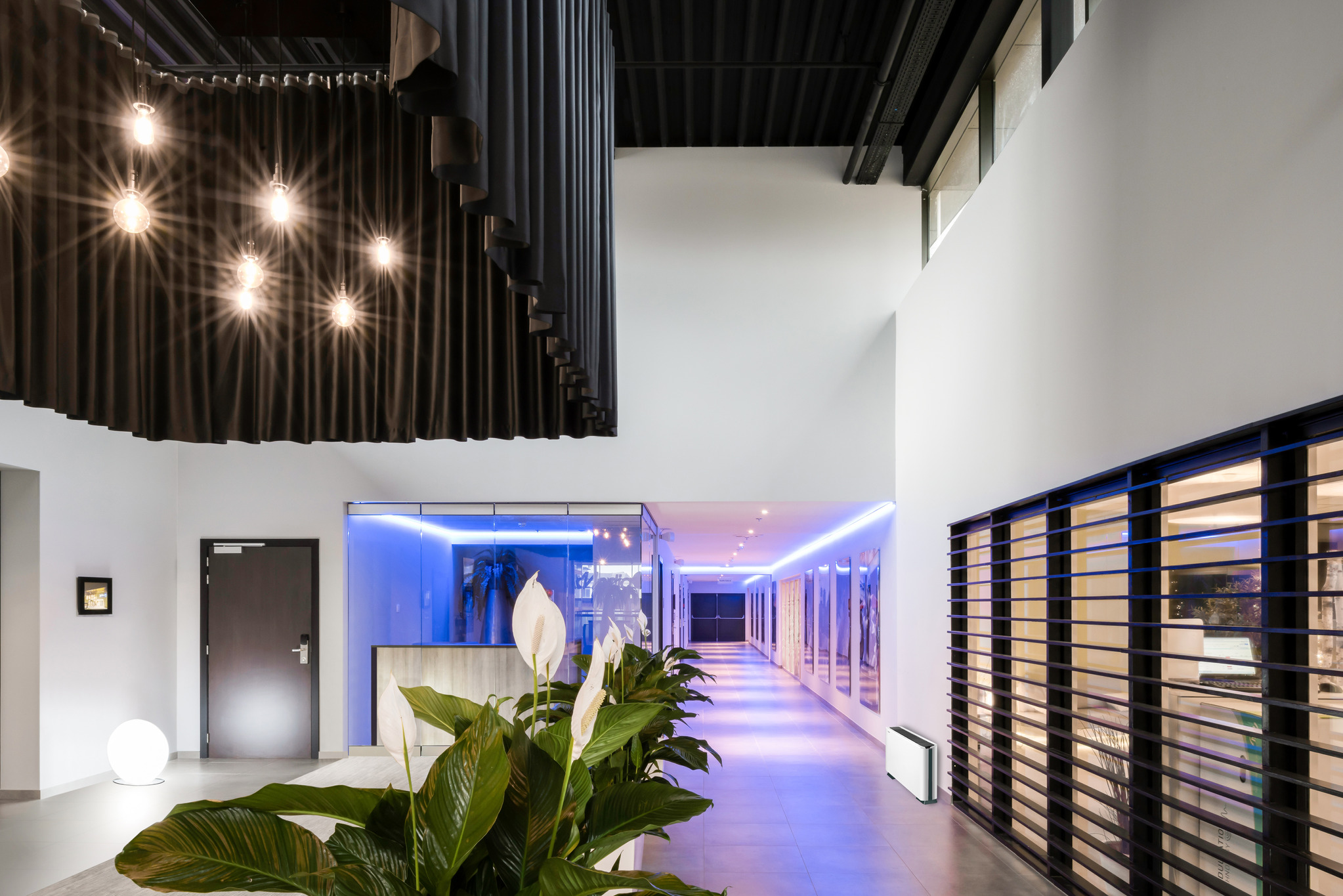
Low-Wall Aircon Units
Experience unmatched air comfort with our top-of-the-line low wall mounted air conditioning units.

Ceiling Mounted Aircon
Ceiling Mounted air conditioning units with professional support from our expert installers.

Breathe easy in every room: where we install air conditioning for ultimate home comfort
Bedrooms
Experience ultimate comfort in your bedroom with our state-of-the-art air conditioning installations.
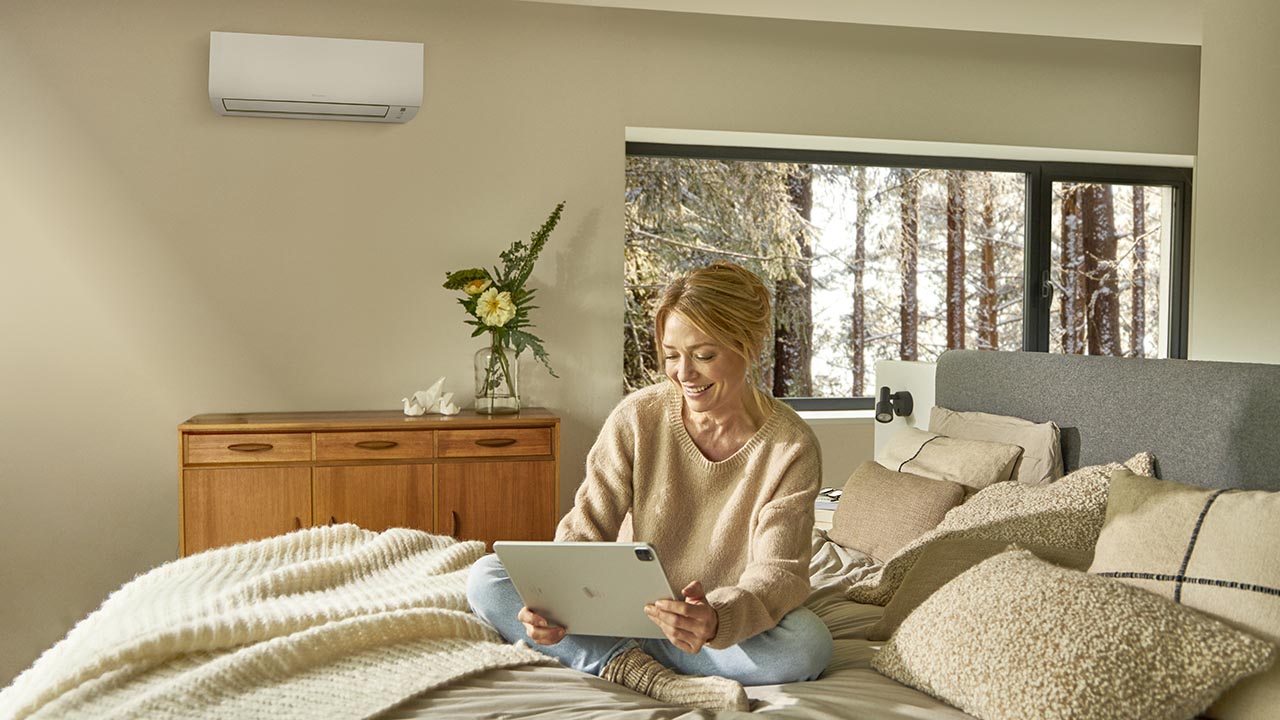
Lounge
Unwind and relax in style with our lounge air conditioning installations provide optimal cooling and comfort.
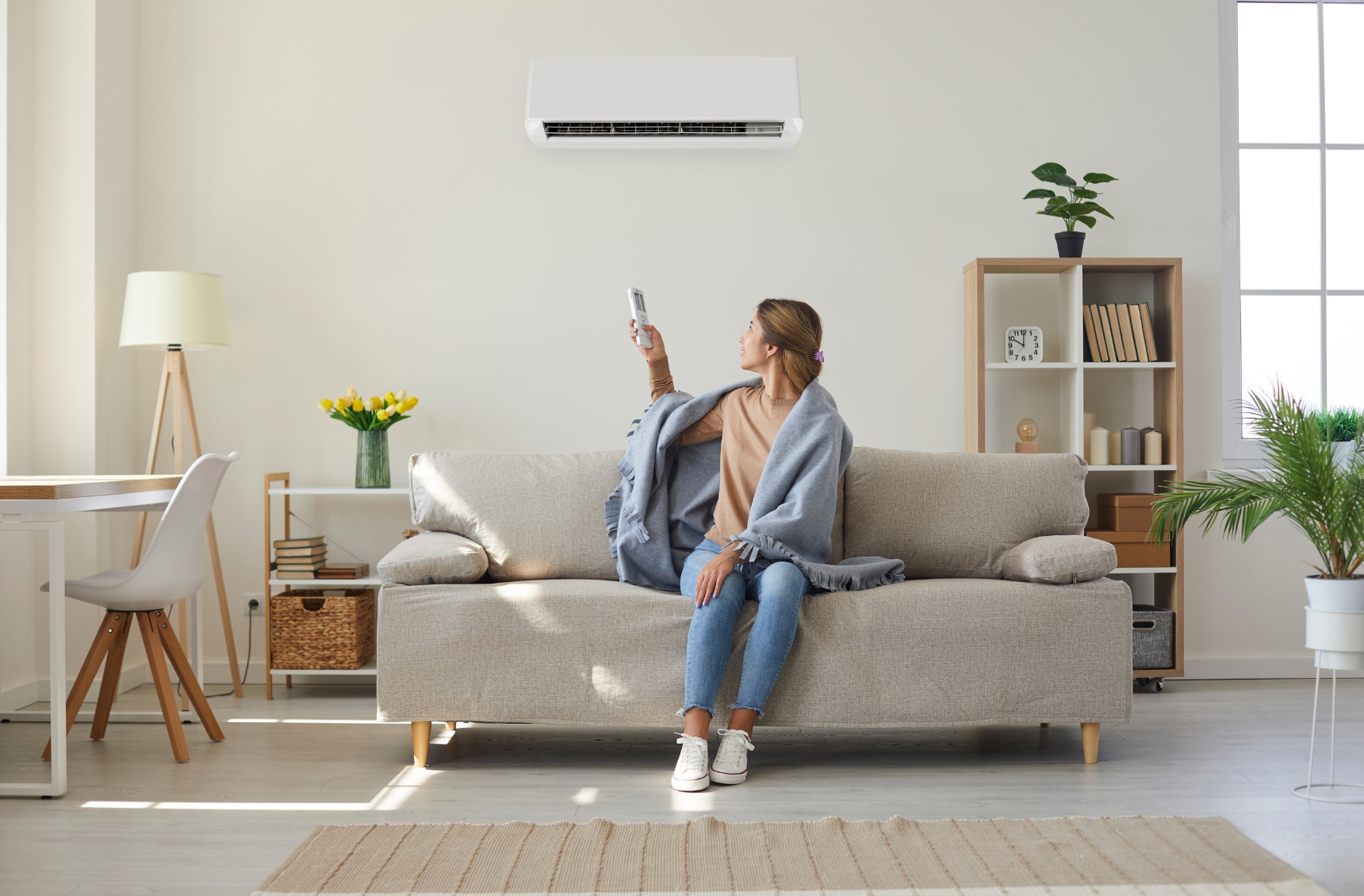
Loft Conversion
Stay cool and comfortable with our top-of-the-line air conditioning installations specially designed for loft conversions.
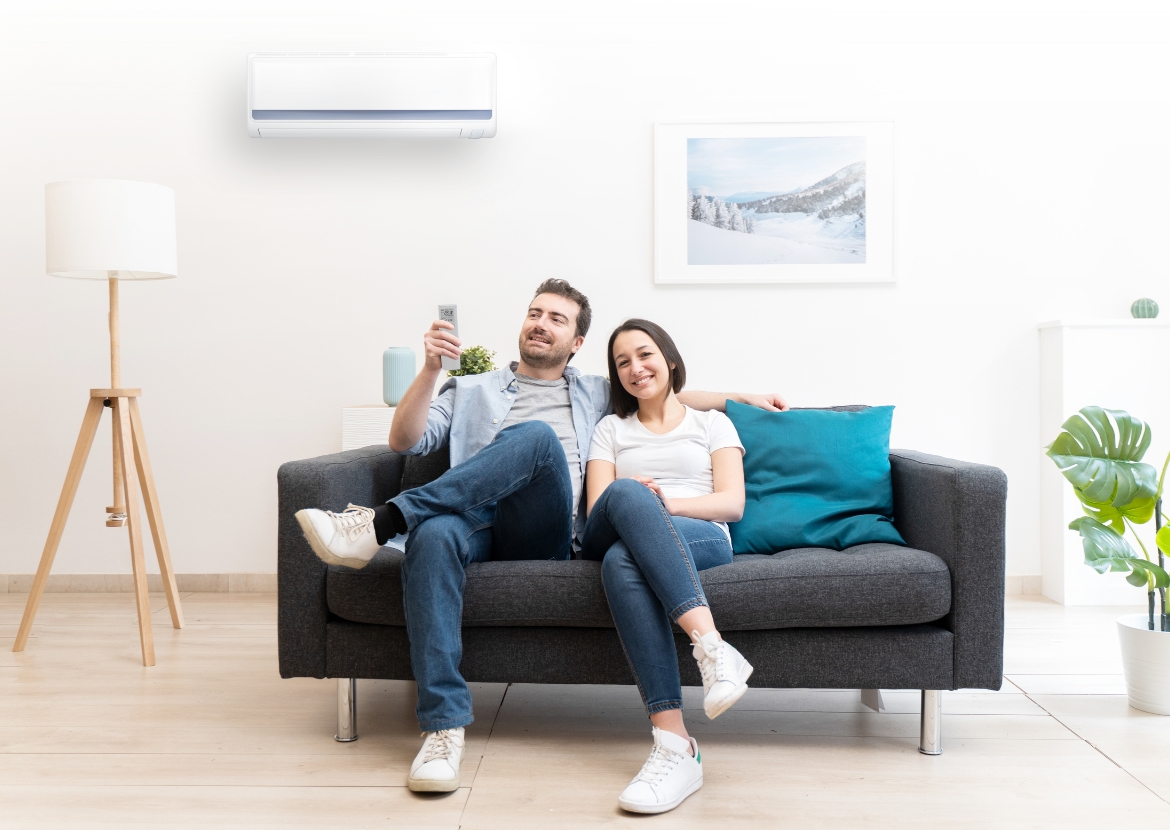
Conservatory
Find year-round comfort in your conservatory with our top-of-the-line air conditioning installations

cooling your space
cooling your space
cooling your space
warming your heart
warming your heart
warming your heart

More info on home air conditioning
See how you can get comfy and maintain a pleasant atmosphere with professional air conditioning solutions for home.
What size air conditioner do I need for my home?
Choosing the right size AC unit is crucial for both comfort and efficiency. An undersized unit will struggle to cool your home effectively, leading to discomfort and higher energy bills. Conversely, an oversized unit will cycle on and off frequently, wasting energy and reducing its lifespan. Several factors influence the ideal size, including:
- Square footage of your home: This is the most crucial factor, as larger homes generally require more cooling power.
- Number of occupants: More people generate more heat, so factor in the number of people living in your home.
- Insulation level: Homes with better insulation require less cooling power to maintain comfort.
- Climate: Hotter climates naturally demand more cooling capacity.
Consulting a qualified HVAC technician is recommended for a precise assessment and sizing recommendation. They can also consider factors like sun exposure and window size to provide the most accurate estimate.
What is the difference between central air conditioning and a window unit?
The primary distinction lies in their cooling scope and installation:
-
Central air conditioning: This system utilizes a network of ducts to distribute cool air throughout your entire house. It consists of an outdoor condenser unit that removes heat from the air and an indoor evaporator coil that cools the air circulated through the ductwork. Central AC offers even cooling throughout the home and is generally more efficient for larger spaces. However, installation can be more complex and expensive.
-
Window unit: This self-contained unit is installed in a window opening and cools only the room it’s placed in. Window units are a more affordable and readily available option, but they can be noisy, less efficient, and may block natural light and airflow.
What are the different types of air conditioners available on the market?
Here’s a breakdown of some common types:
- Central air conditioners: As discussed above, these cool the entire home using ductwork.
- Ductless mini-split systems: Similar to central AC, but they use individual indoor units mounted on walls, eliminating the need for ductwork. This makes them ideal for homes without existing ductwork or specific cooling needs in certain rooms.
- Portable air conditioners: These mobile units are vented out a window and offer temporary cooling solutions for individual rooms or occasional use. They are generally less efficient and not ideal for long-term cooling needs.
- Evaporative coolers: These eco-friendly units cool the air by drawing it through water-soaked pads, but they work best in dry climates and are not true air conditioners as they don’t remove heat from the air.
How much does it cost to install an air conditioner at home?
Installation costs vary depending on the type of unit, size of your home, and complexity of the job. Central AC installations typically cost more due to the ductwork involved, while window units are generally the most affordable option. Consulting with several qualified HVAC contractors for quotes is essential to compare prices and find the best value for your needs.
How much does it cost to run an air conditioner?
Running costs depend on several factors, including:
- Unit efficiency: Look for units with high SEER (Seasonal Energy Efficiency Ratio) ratings, as they use less energy to achieve the same cooling effect.
- Size of your home: Larger homes naturally require more energy to cool.
- Local energy costs: Electricity costs vary by location, so factor in your local rates.
- Usage: The more you use your air conditioner, the higher your running costs will be.
Implementing energy-saving practices, like keeping your thermostat at a higher setting when at home and using ceiling fans, can significantly reduce your energy consumption and overall costs.
How do I maintain my home air conditioner?
Regular maintenance is crucial for optimal performance, efficiency, and lifespan of your air conditioner. Here are some key maintenance tips:
- Change the air filter regularly: This is typically recommended once a month during peak cooling seasons. A clogged filter restricts airflow, reducing efficiency and cooling capacity.
- Schedule professional cleaning: An annual professional cleaning by a qualified technician ensures the system is cleaned thoroughly, removing dust, debris, and potential allergens.
- Keep the outdoor unit clear of debris: Remove leaves, branches, and other obstructions around the outdoor unit to ensure proper airflow.
How long does an air conditioner last at home?
With proper maintenance, air conditioners can last anywhere from 10 to 15 years, sometimes even longer. Regular maintenance helps prevent breakdowns, extend lifespan, and ensure your system operates efficiently throughout its service life.
What are some energy-efficient features to look for in an air conditioner?
When choosing an air conditioner, consider these energy-saving features:
- High SEER rating: Look for units with a higher SEER rating, which indicates greater efficiency. The higher the SEER, the less energy the unit consumes to cool your home.
- Variable speed operation: This technology allows the compressor to adjust its speed based on cooling demand, resulting in more efficient operation and reduced energy consumption compared to single-speed units.
- Smart controls: Programmable thermostats and smart home integration allow for better temperature control and scheduling, enabling you to adjust cooling only when needed, further saving energy.
What are some signs that my air conditioner needs repair?
Several signs indicate potential issues with your air conditioner:
- Uneven cooling: If some rooms in your home are not cooling adequately, it could signify problems with airflow, refrigerant leaks, or a malfunctioning compressor.
- Increased noise: Unusual noises like grinding, rattling, or squealing can indicate loose parts, failing components, or improper lubrication.
- Leaks: Water leaks around the indoor unit or refrigerant leaks near the outdoor unit could point to various issues requiring professional attention.
- Rising energy bills: A sudden increase in your energy bills without any significant changes in usage patterns could indicate reduced efficiency due to failing components or improper operation.
What should I do if my air conditioner is not working?
If your air conditioner malfunctions, follow these steps:
- Turn off the unit: This prevents further damage and potential safety hazards.
- Check the thermostat: Ensure the thermostat is set to “cool” and the desired temperature is within the operational range.
- Replace the air filter: A clogged filter can significantly impact performance. Try replacing it with a clean one.
- Consult the owner’s manual: The manual might offer troubleshooting tips for common issues.
If these steps don’t resolve the problem, contact a qualified HVAC technician for diagnosis and repair. They can assess the issue accurately, recommend the appropriate solution, and ensure your air conditioner is functioning safely and efficiently.








